Your cart is currently empty!
By
John Abraham
| UPDATED

I’ve come to see that strong relationships with grandkids are not built in a single day. They take shape slowly, nurtured with trust, love, and patience over time.
But sometimes little things slip in without us realizing. Not because we mean to cause harm, but because life gets busy, or generations see things differently, or words and actions are misunderstood.
The beauty is, once we notice these small patterns, we can shift them. And by doing so, we keep our place in their lives steady and warm, the kind of presence they can lean on and always trust.
With that in mind, here are 35 subtle things that might be getting in the way of your relationship with your grandkids, and how to keep the bond as strong as it should be.
35. Interrupting Their Stories

Cutting in while your grandchild is speaking might seem harmless, but it can make them feel unheard. Children need space to express themselves fully, even if their stories wander or take time to unfold. When you wait patiently and let them finish, you send a clear message: what they have to say matters. Over time, they’ll feel more comfortable confiding in you because you’ve shown them respect through listening.
34. Overusing Teasing

Playful jokes can be fun, but constant teasing—especially about sensitive topics—can damage trust. Kids often hide hurt feelings to avoid seeming overly sensitive, yet the impact can linger. Gentle humor is fine, but always check that your jokes are kind and that your grandchild is laughing with you, not feeling laughed at. Respecting their comfort levels builds emotional safety.
33. Comparing Them to Others

Saying, “Your cousin is so good at math” might be meant as encouragement, but comparisons can spark insecurity. Grandkids thrive when recognized for their unique strengths rather than measured against someone else. Instead of comparisons, celebrate their individual progress and efforts. This fosters self-worth and reinforces that you value them for who they are, not how they stack up to others.
Quick Quiz
32. Overstepping Parenting Boundaries
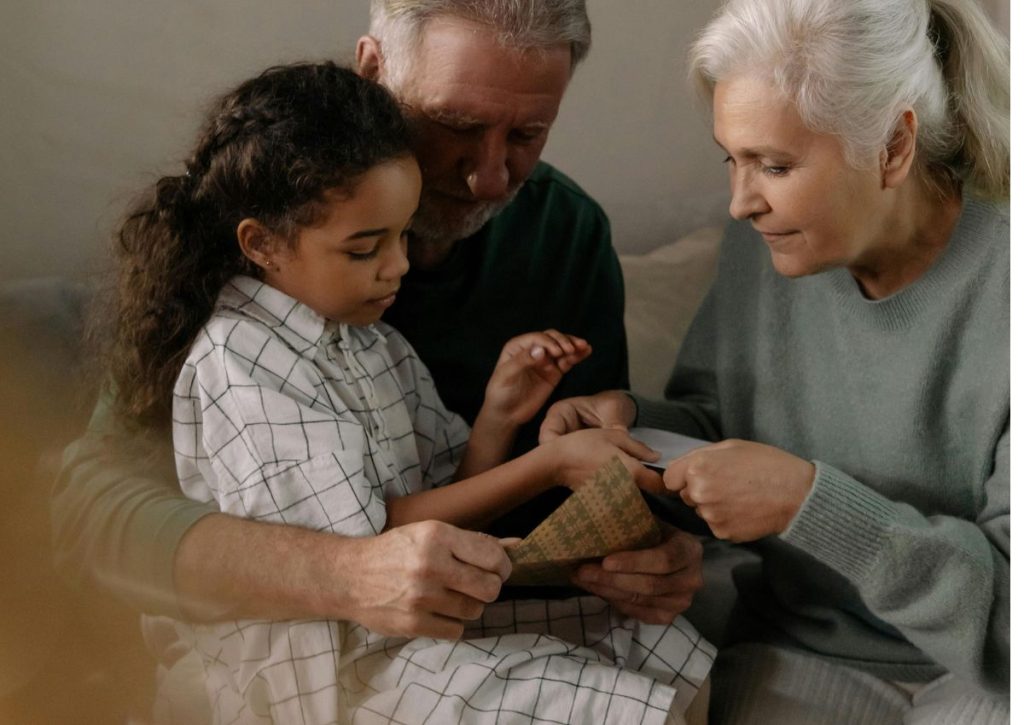
You may want to guide or correct behavior, but contradicting their parents’ rules in front of them can cause confusion and tension. Respecting parenting boundaries shows unity and stability. If you disagree with a rule, discuss it privately with the parents. When your grandchild sees consistent expectations, they feel secure and understand that your role is to support, not undermine.
31. Dismissing Their Interests

If a child is excited about a video game, song, or hobby, brushing it off as silly sends the message that their passions aren’t important. Even if it’s unfamiliar to you, showing curiosity strengthens your bond. Ask questions, watch them play, or listen to their favorite song. When you value what matters to them, they feel respected and understood.
30. Talking Only About Your Childhood

Sharing your stories is wonderful, but if every conversation circles back to your experiences, they may feel overlooked. Balance storytelling with listening to theirs. Ask about their school day, friends, or dreams. By making space for their narratives, you show that their lives and voices are equally important in your relationship.
29. Offering Unsolicited Advice Constantly
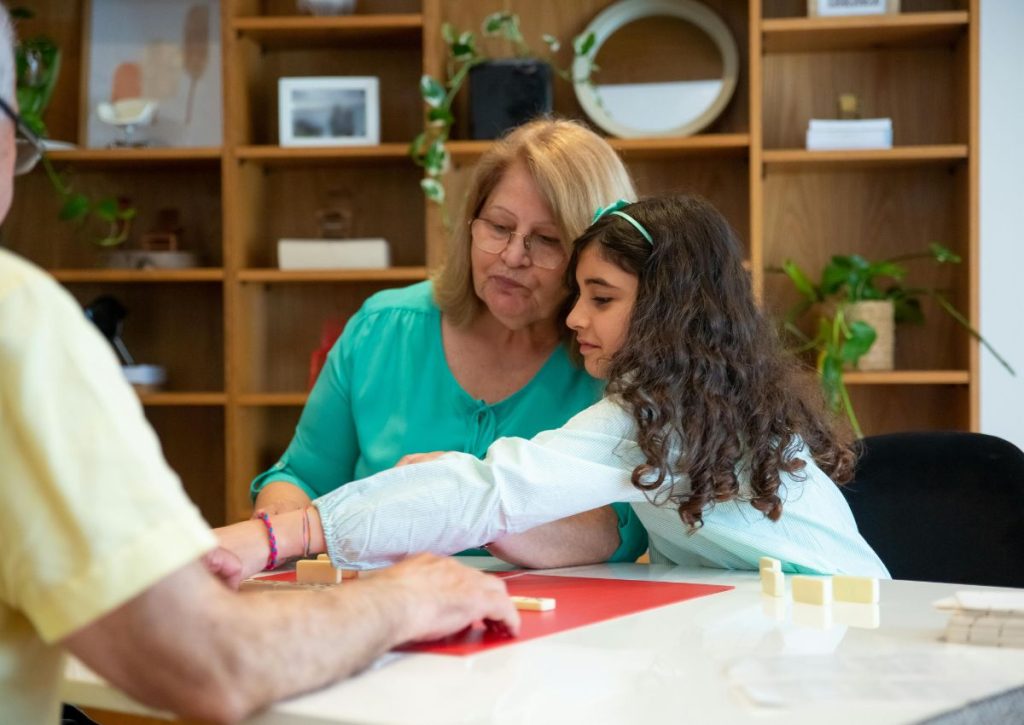
Advice is valuable, but when every interaction includes unsolicited tips, kids can feel judged. Sometimes they need a listening ear, not a solution. Pause before offering suggestions and instead ask if they want advice or just to be heard. This approach fosters trust and lets them know you respect their ability to figure things out too.
28. Favoring One Grandchild Over Another

Even subtle favoritism—more praise, extra gifts, or longer visits—can create deep emotional divides. Children notice small differences in treatment, and these can cause resentment or rivalry. Make a conscious effort to give equal time, attention, and affection to each grandchild, ensuring they all feel equally loved and valued.
27. Overloading Them with Gifts

While gifts are a sweet gesture, overdoing it can shift the focus from relationships to possessions. Kids might begin associating your visits only with getting things rather than spending time together. Thoughtful, occasional gifts paired with shared activities keep the connection centered on love, not material rewards.
Quick Quiz
26. Not Respecting Privacy as They Grow
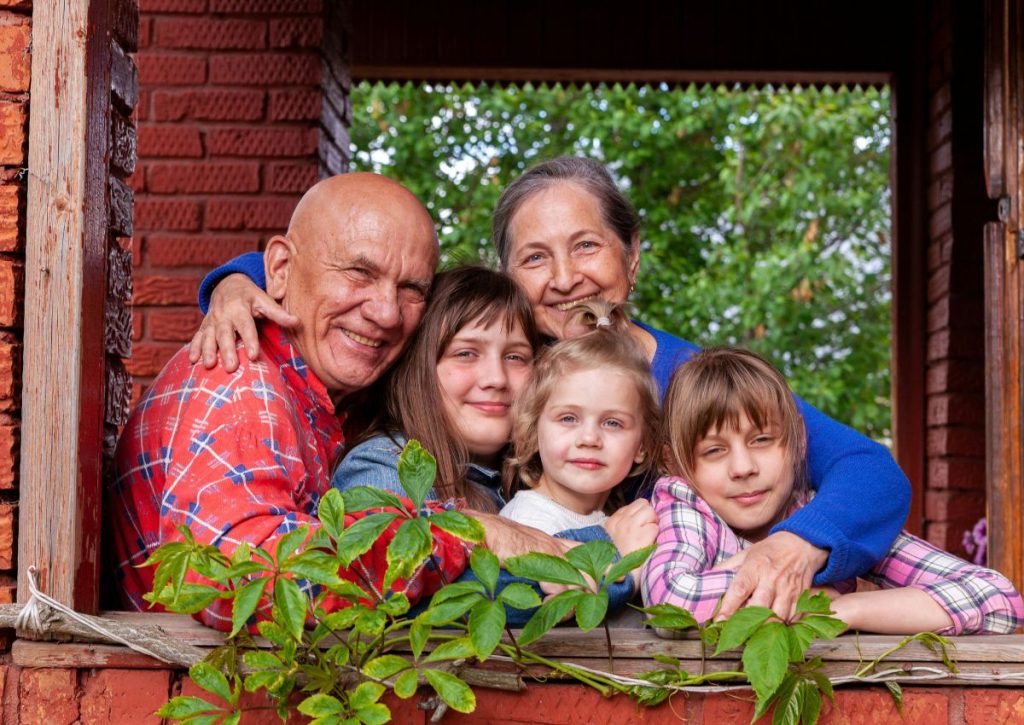
As grandkids become teens, their need for privacy grows. Reading personal notes, scrolling through their phone, or probing into their friendships without invitation can feel intrusive. Respecting their boundaries shows you trust them, and in turn, they’re more likely to share personal parts of their lives willingly.
25. Ignoring Small Achievements

A+ grades and big wins are worth celebrating, but so are smaller milestones—a tough homework problem solved, a new skill learned, or a kind act toward a friend. Recognizing these moments tells your grandkids that effort matters just as much as the end result, fostering self-confidence and a healthy mindset.
24. Dismissing Their Feelings

Telling a child to “toughen up” or “stop crying” can make them feel invalidated. Even if their upset seems minor, it’s real to them. Acknowledging their feelings before offering perspective teaches empathy and emotional regulation. This approach helps them trust you with their emotions without fear of being belittled.
23. Constantly Talking About Siblings or Parents
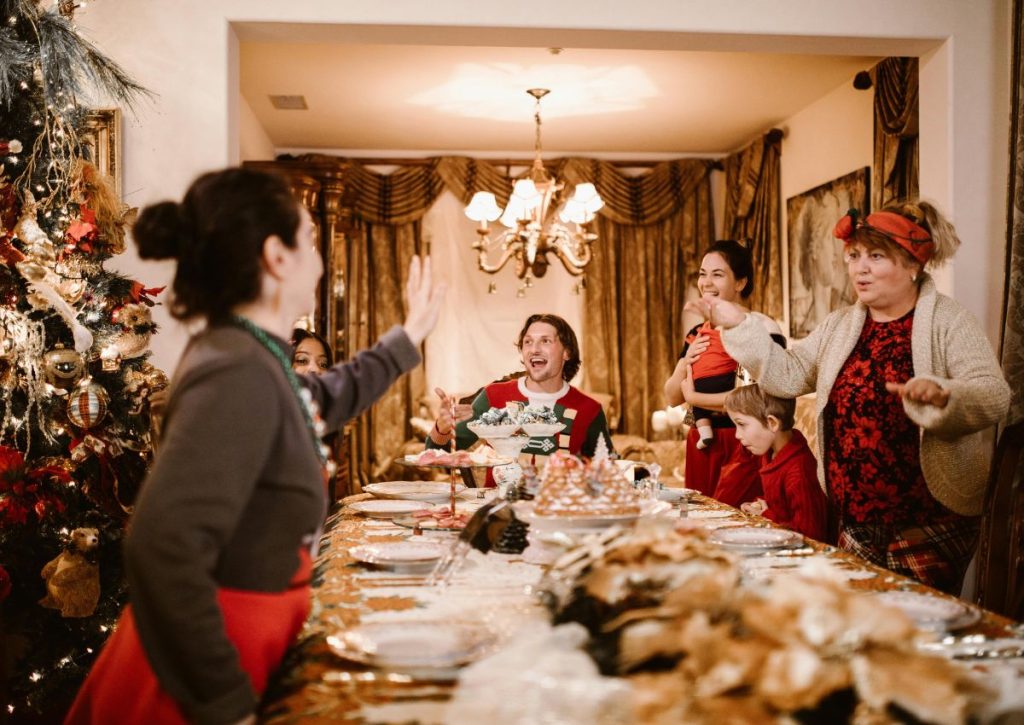
Overemphasizing their parents’ childhood achievements or their siblings’ successes can make grandkids feel they’re in competition. It’s fine to share family stories, but be sure to focus equally on their own accomplishments, quirks, and growth. That way, they feel seen as individuals rather than simply part of a comparison chain.
22. Overreacting to Mistakes

Accidents happen—spilled drinks, broken items, or missed curfews. Responding with extreme frustration can cause fear and distance. Calmly addressing the issue while showing understanding reinforces that your love isn’t conditional on perfection. It also models healthy ways to handle mistakes.
21. Expecting Them to Always Come to You

Relationships are a two-way street, and waiting for grandkids to reach out might lead to less contact. Take the initiative to text, call, or send a letter. Even brief check-ins show them you’re thinking of them and care about staying connected, regardless of distance or busy schedules.
20. Talking Down to Them

Using overly simple language or a patronizing tone can make kids feel underestimated, especially as they get older. Speak to them with the same respect you’d offer an adult while still being age-appropriate. This approach builds mutual respect and helps them feel capable and valued.
19. Overprogramming Visits

Packing every moment with activities can make visits feel exhausting. Leave room for relaxed, unstructured time where you can talk, play, or simply be together. Often, it’s the unscripted moments that build the strongest memories and bonds.
18. Forgetting to Apologize

If you make a mistake—say something hurtful, break a promise—owning it and apologizing teaches humility and repair. Kids remember adults who acknowledge their faults instead of brushing them aside. This not only repairs trust but also models accountability for their own relationships.
Quick Quiz
17. Avoiding Tough Conversations

It can be tempting to steer clear of topics like bullying, failure, or sadness, but these are moments when kids need guidance most. Being willing to listen without judgment shows you can handle the hard stuff, making you a safe space for deeper discussions.
16. Being Distracted During Visits

Even brief phone checks or glances at the TV can make grandkids feel unimportant. Kids are highly sensitive to attention, and they notice when it’s divided. Setting aside devices and being fully present—making eye contact, engaging in conversation, or simply sitting together—shows them they are your priority. This presence communicates love more powerfully than words or gifts ever could.
15. Overemphasizing Discipline
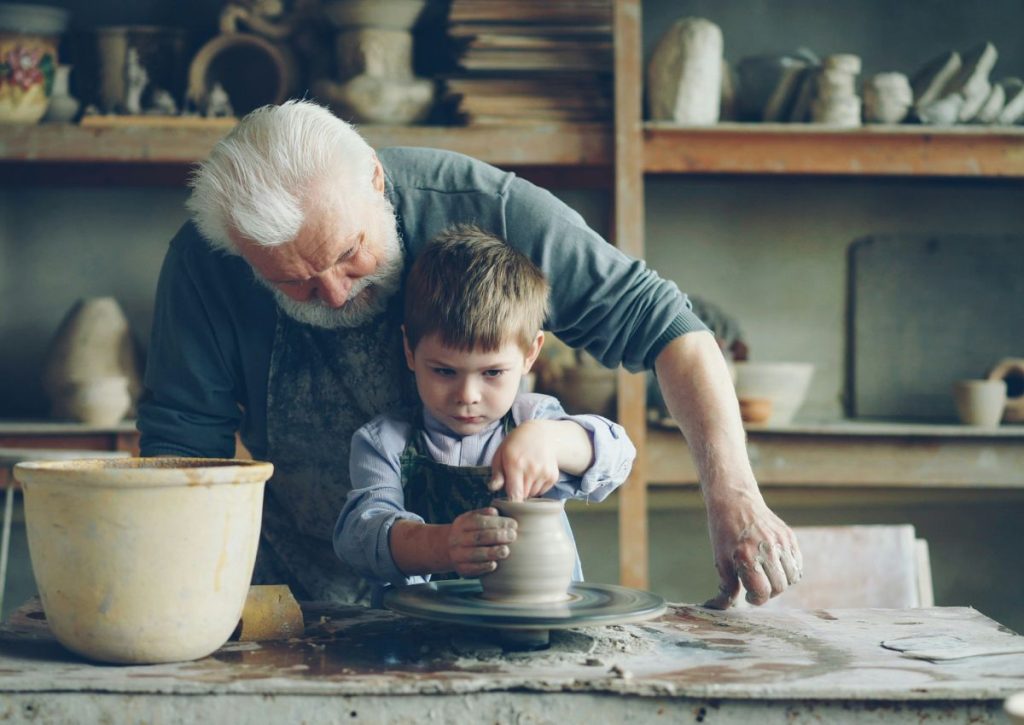
Correcting every small mistake can make interactions tense and stressful. While guidance is important, over-policing minor behaviors can overshadow the joy of simply being together. Let some quirks and playful behaviors slide. Your role is to nurture, not manage, and focusing on shared enjoyment strengthens your bond over authority.
14. Forgetting Names and Details

Remembering the names of friends, teachers, or coaches—and asking about them—shows genuine interest in their life beyond the family. Forgetting these details can unintentionally signal indifference. Engaging with their broader world demonstrates care and encourages them to share more about their experiences, dreams, and challenges.
13. Breaking Promises

Even small broken promises can undermine trust. Kids learn quickly that words matter. If a promised outing, gift, or activity can’t happen, explaining honestly and apologizing reinforces reliability and accountability. Demonstrating follow-through consistently makes your grandchild feel secure in your presence and trust in your word.
12. Minimizing Their Feelings

Phrases like “It’s not a big deal” or “You’re overreacting” can leave children feeling dismissed. Even if their concerns seem trivial to you, validating their emotions first—“I see why that upset you”—builds emotional safety. Feeling heard strengthens your bond and teaches them that their feelings are important.
11. Undermining Their Parents’ Authority

Disagreeing with parental rules—about bedtime, chores, or screen time—in front of your grandchild creates confusion. Consistently supporting their parents’ guidance during visits while discussing disagreements privately shows respect for the family structure. Kids feel secure when adults present a unified front.
10. Overexplaining Your Choices

Long, detailed explanations of why you do things can come across as lecturing. Sometimes, a simple, concise explanation accompanied by trust and openness is far more effective. This keeps interactions light, respectful, and focused on connection rather than justification.
9. Losing Touch With Their Interests
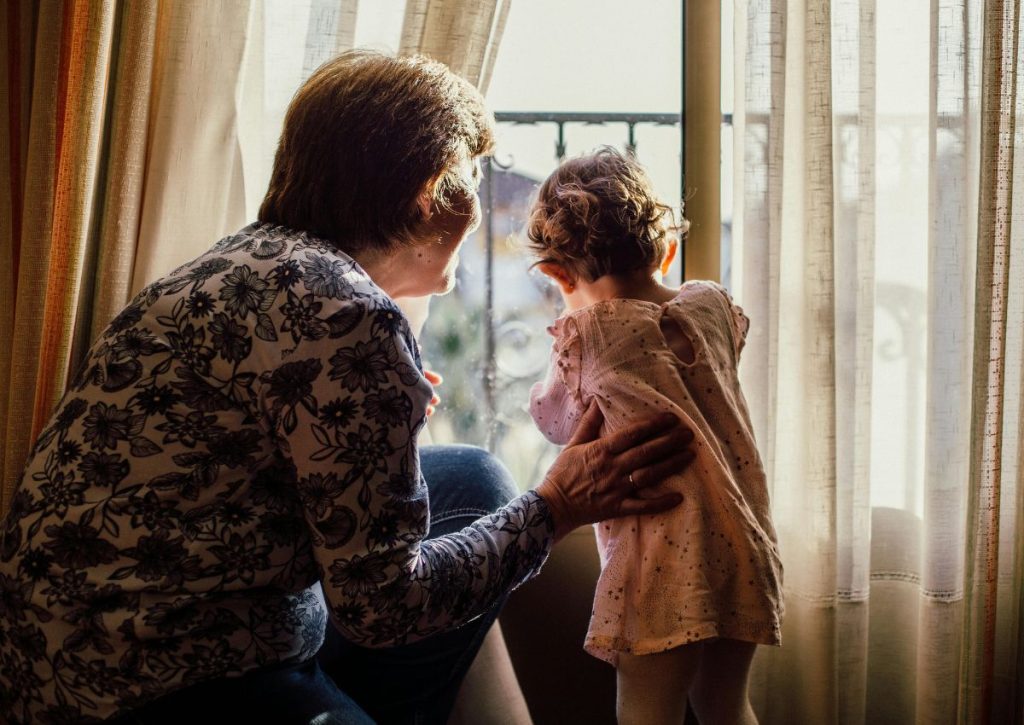
When you fail to follow or show curiosity about their hobbies, favorite shows, or activities, it may feel like you’re out of touch. Taking small steps—watching their favorite show together, asking about a new game, or learning about a sport they love—signals that you care about what matters to them.
8. Avoiding New Experiences Together

Saying no to trying new foods, games, or activities can feel dismissive. Occasionally stepping out of your comfort zone demonstrates enthusiasm, openness, and willingness to meet them in their world. Shared novelty often creates lasting memories and inside jokes that strengthen your connection.
7. Correcting Language or Behavior Excessively

While gentle correction has its place, constant nitpicking can make children self-conscious and hesitant to express themselves. Focus first on connection and encouragement. Correct gently and contextually, and prioritize building confidence over perfection.
6. Letting Your Mood Dictate Interaction
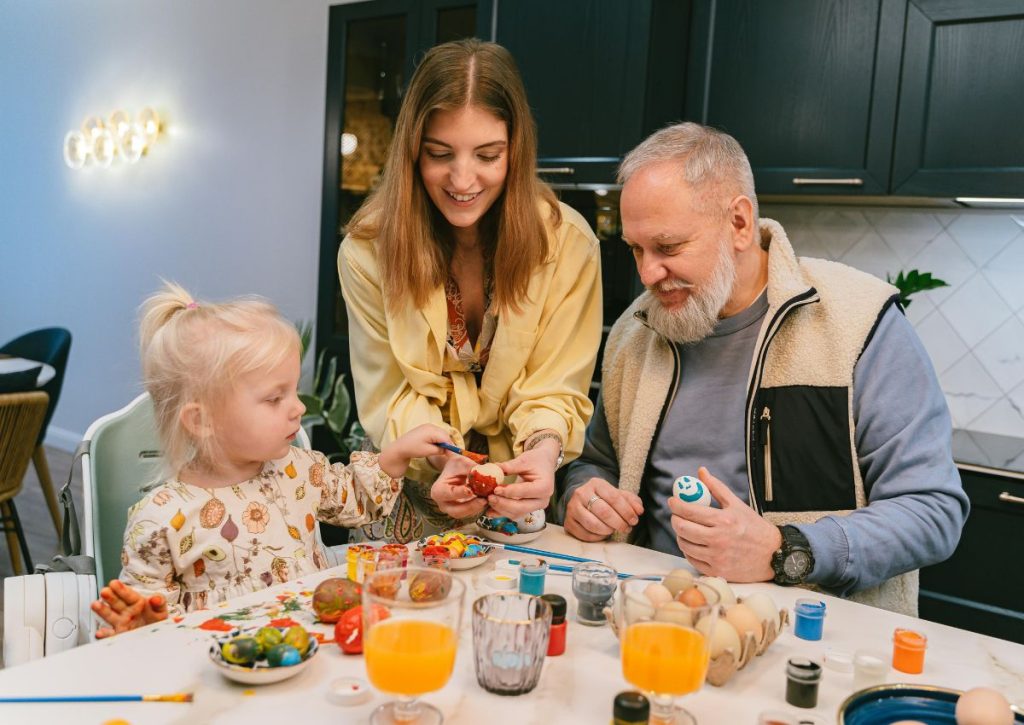
Grandkids are perceptive. Stress, fatigue, or irritation can spill over and make them feel unwelcome or unsafe. While you don’t need to hide your emotions completely, showing composure, patience, and empathy—even on tough days—reinforces that your love and attention are constant.
5. Failing to Celebrate Achievements

Kids thrive on recognition. Forgetting birthdays, accomplishments, or milestones—big or small—can feel like indifference. Celebrating effort and achievement, even in subtle ways, reinforces their self-worth and reminds them you notice and care about their growth.
4. Talking Only About Yourself

Sharing your life is valuable, but dominating conversation with your own stories can overshadow theirs. Balance sharing with asking open-ended questions about their day, feelings, and interests. A dialogue that values their voice fosters mutual respect and emotional closeness.
3. Avoiding Emotional Conversations

It may feel easier to skip tough topics like fears, friendships, or disappointments, but doing so risks missing critical bonding moments. Being willing to listen without judgment shows you are a safe space. Kids remember adults who help them navigate life’s challenges with empathy and patience.
2. Letting Visits Become Predictable

Routines provide comfort, but overly predictable visits can feel boring. Introducing small surprises—like a new game, an unexpected outing, or a shared craft—keeps interactions fresh and exciting. Variety signals enthusiasm and thoughtfulness, keeping your relationship dynamic and engaging.
1. Failing to Model Respect and Kindness

Grandkids learn far more from observing behavior than hearing advice. How you treat others—friends, strangers, and family—teaches empathy, patience, and integrity. Demonstrating kindness and respect in everyday actions sets a powerful example they are likely to emulate in their own relationships.

